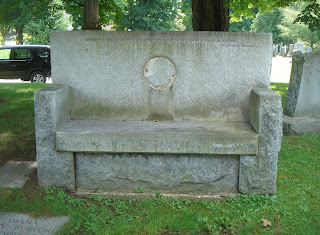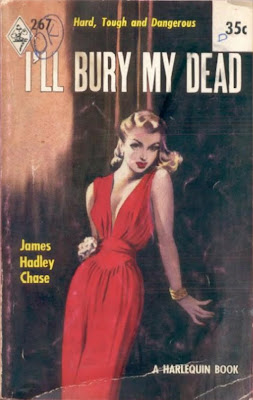
Back in March, Jim Prentice introduced legislation recognizing Ottawa's Beechwood Cemetery as the national cemetery of Canada. Amongst other things, the preamble tells us that "Parliament considers a national cemetery to be a worthy final resting place for Governors General, Prime Ministers and recipients of the Canadian Victoria Cross." The bill passed easily, with little enthusiasm and no debate. It seems no one questioned how we'd managed for so long without a national cemetery, or why one was needed at all... and the matter of Canadian unity, given as a raison d'être for the legislation, was never raised.
I don't think I'm alone in thinking the concept a touch foreign (read: American). That Beechwood is a "worthy final resting place" cannot be disputed, but then the same can be said for a great many cemeteries in this country. I'll add that, given its location, it is a bit odd that 142 years after Confederation just one Prime Minister (Robert Borden) and one Governor General (Ray Hnatyshan) have been buried at Beechwood. Of our 94 Victoria Cross recipients, not one chose the cemetery as their final resting place. What effect the nudging of the 40th Parliament will have going forth remains to be seen.
Even in a country that tends to ignore its literature, I think more associate the cemetery with Archibald Lampman than Messrs Borden and Hnatyshan. Lines from the poet's "In Beechwood Cemetery" grace the entrance, and he is buried on its grounds.

In fact, with Wilfred Campbell and D.C. Scott, Lampman is one of three prominent poets at rest in Beechwood (their number greater than the PMs, GGs and VC recipients combined). I've never visited Scott's grave, but I have the other two. Both have distinctive memorials. Lampman's, a rock with his name cut in the side, is otherwise natural, while Campbell's is in the form of a bench. I've never sat on this memorial, for much the same reason I try my best to avoid walking on graves; I don't like the thought of my feet resting above someone's head. That said, I find it admirable... and wonder that it has fallen into such disrepair. Various lead letters have disappeared, likely due to weather, but the great shame is that its focal point, a medallion, is also missing. This is no recent disappearance. A friend, tells me that the piece was absent when he first visited the cemetery some five decades ago.
And so, a new project: to determine the design of the missing medallion and, with permission, have a replacement cast.


















